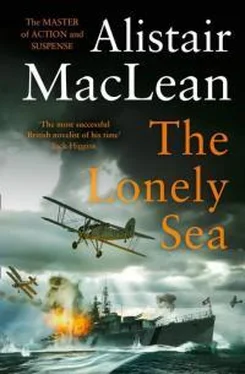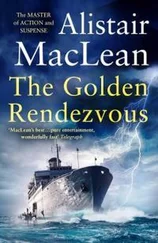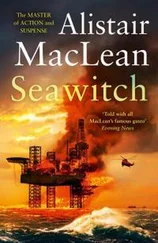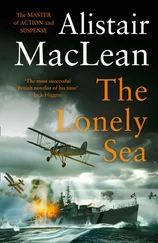This statement by Mr Zampi, who must have suffered considerably on hearing the courage of his countrymen so frequently maligned in the days after the sinking, might well be suspected of being actuated by pique, nationalistic bias, or a very understandable desire to get a little of his own back, especially as it seems so grossly improbable.
In point of fact it is perfectly true, except that it was a corporal Mr Zampi saw and not a sergeant: and that corporal, by a remarkable coincidence, was the fourth witness, then Corporal Duxberry of the Welsh Regiment, the most informative of all the witnesses, whose phenomenal memory is matched only by the detailed accuracy of his recollections of these days.
‘Some of the guard,’ Ivor Duxberry says, ‘disregarded the order of “Prisoners of war and internees first into the boats”. Major Bethell – CO of the 109 POW unit – using a megaphone from the bridge, ordered them out. When they didn’t respond, he ordered me to fire a volley over their heads to show that he meant business.’ Duxberry fired as ordered, and the soldiers soon left.
Duxberry confirms that there was no general panic or fighting. He did, he says, see two Italians, a young man and an old, fighting for a position in a boat, a fight which quickly ended when a German internee knocked out the younger man with a ship’s dry scrubber and escorted the old man into the boat.
Apart from these minor incidents, there was no trouble at all of the kind described in the papers at the time. Why, then, these reports?
The obvious answer, of course, is that the citizens of an embattled nation tend to become afflicted with an irremediable chauvinism, a nationalistic myopia which only peace can cure, a temporary suspension of reasonable judgment where our side, our troops, become the good, the kindly, the brave, while those of the other, the enemy, become the bad, the wicked and the cowardly.
But, as so often, the obvious answer is the wrong one. Top newspapermen, such as covered these stories, are, as a class, less likely to be affected by such unthinking emotionalism than almost any other people. Hard-headed realists, cynics in the best sense of the word, they tend to regard with a very jaundiced eye indeed the flag-waving, drum-beating, nonsensically juvenile jingoism of the average nation at war. Their job is to get and evaluate facts.
It is more than likely that they did get and evaluate the facts, took a good look at them and hastily put them away, using instead the accounts of a few ill-informed survivors to put flesh on the bones of their stories and at the same time give a reasonable explanation for the dreadful loss of life. They did so because they had a very healthy fear of editors, of the censor and of the terms of imprisonment which might all too easily come the way of any man so foolish as to tell the truth in wartime, if that truth could be interpreted as a violation of security, as lowering morale or giving aid and encouragement to the enemy.
These are the facts, the true reasons for the great loss of life:
1. The ship was grossly overloaded. All the survivors agree on this. Originally – in peacetime – the Arandora Star carried 250 first-class passengers, but later had superstructure alterations made to accommodate another 200 passengers. On the morning of the disaster there were close on 1,700 internees and guards aboard, in addition to the normal ship’s crew.
Ivor Duxberry was with his CO, Major Bethell, when the latter was told by the ship’s master – Captain E. W. Moulton – that he had protested most strongly about the danger of overcrowding, and demanded that his number of passengers be cut by half. The authorities had refused to listen to him. It is not known precisely who these authorities were, except that they were not Frederick Leyland & Co, the owners of the vessel, nor the Blue Star Line, its managers.
2. Some of the survivors state that there were not enough lifejackets. The truth of this statement is difficult to substantiate – obviously no person, other than the chief officer and those directly responsible to him, can know where every lifejacket is – but what seems beyond dispute is that if there were enough, they were not issued to all.
Many people drowned through the lack of these jackets. It may be, although it seems extremely unlikely, that scores of people forgot that they had these jackets: apart from that, many had none in the first place. Steward Crisp had no lifejacket, and neither had Corporal Duxberry, who says that, as far as he knows, not one member of the guard was issued with a lifejacket. Reports at the time speak of army officers handing over their lifejackets to internees, but these were isolated instances.
3. There were far too few lifeboats. There were about a dozen of these, old, worn out, and with a capacity of about sixty each, altogether a total capacity of less than half of the entire complement of the Arandora Star. Some of these had had oars, emergency provisions and plugs removed, to immobilize them against any escape attempt on the part of the internees. How those responsible for this monstrous action thought that any party of internees could steal a lifeboat with armed soldiers constantly on guard and sailors on lookout is difficult to understand: but it is downright impossible to understand how it could be thought possible to lower a boat safely in darkness with the liner racing at full speed through the rough Atlantic seas. It is hard to imagine any naval man being responsible for this action.
4. There appears to have been no lifeboat drill whatsoever. Neither Mr Crisp nor Mr Fulford had anything to say on this matter, very possibly and understandably because they wished to cast no reflection on their employers, one of the world’s most respected shipping companies – an admirable but unnecessary reticence because no blame attaches to the company. But neither Mr Zampi nor Mr Duxberry had any such hesitations, and the absence of drill is borne out in Mr Lafitte’s book The Internment of Aliens.
It would be easy, and perhaps proper, to call this criminal negligence, but, in fairness, it must be borne in mind that there were many confirmed Nazi merchant sailors and submariners on board who might have chosen the confusion of this drill as a cover to gain control of the ship.
5. The rafts, which might have saved most of those who could find no room in the lifeboats, were secured by wire. These wires could only be loosened by special implements which all too often were unobtainable, or their location unknown. Most of the rafts, immovably lashed in position, eventually went down with the Arandora Star.
6. All the above reasons – the overloading, shortage of lifejackets and lifeboats, the lack of drill and jammed rafts – undoubtedly contributed materially to the heavy loss of life. But, nevertheless, all of these taken together did not even begin to equal the lethal, murderous effect of one other item, the existence of which was not even admitted at the time: barbed wire.
The decks of the ship were unrecognizable, surrounded and festooned with impenetrable barbed-wire fencing which turned the Arandora Star into a floating concentration camp.
‘I had had a lot of experience with POW cages,’ Ivor Duxberry says, ‘but I have never seen barbed wire erected more expertly than this. It was impregnable – so closely woven that no space was big enough for a man to get his head through without damaging himself.
‘This barbed wire partitioned the decks – and cut off access to the lifeboats. ’
It cut off access to the lifeboats. One single damning statement that holds the key to the tragedy of the Arandora Star – barbed wire cut off access to the lifeboats. Little wonder, indeed, that security clamped down on all mention of this: what magnificent propaganda material it would have made for the Axis!
Читать дальше
Конец ознакомительного отрывка
Купить книгу












